Question And Answer
Publications
Articles, publications, books, tools and multimedia features from the U.S. Institute of Peace provide the latest news, analysis, research findings, practitioner guides and reports, all related to the conflict zones and issues that are at the center of the Institute’s work to prevent and reduce violent conflict.
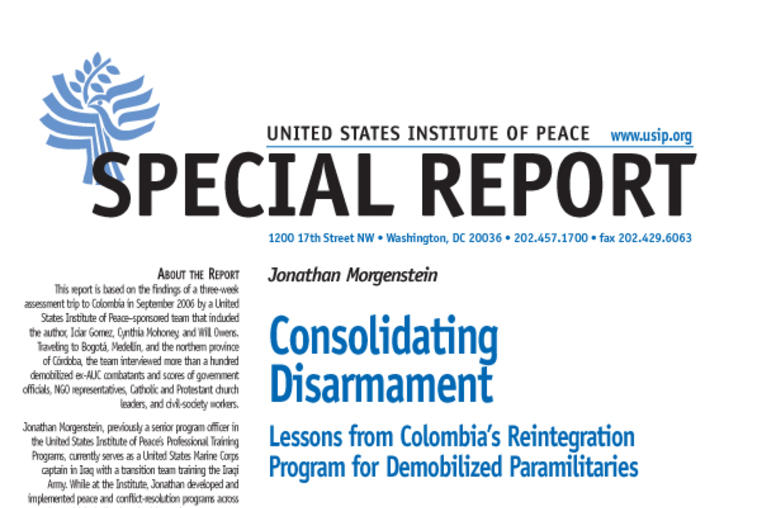
Consolidating Disarmament: Lessons from Colombia’s Reintegration Program for Demobilized Paramilitaries
An essential component of any post-conflict stabilization program is the permanent dismantlement of armed groups and their fruitful absorption into civilian society—this process is known as disarmament, demobilization, and reintegration. Although Colombia continues to wrestle with violent conflict at the hands of multiple armed factions, the country embarked on a major DDR program in 2003 with the goal of permanently ending the threat of violence from one of those armed factions—the United Se...
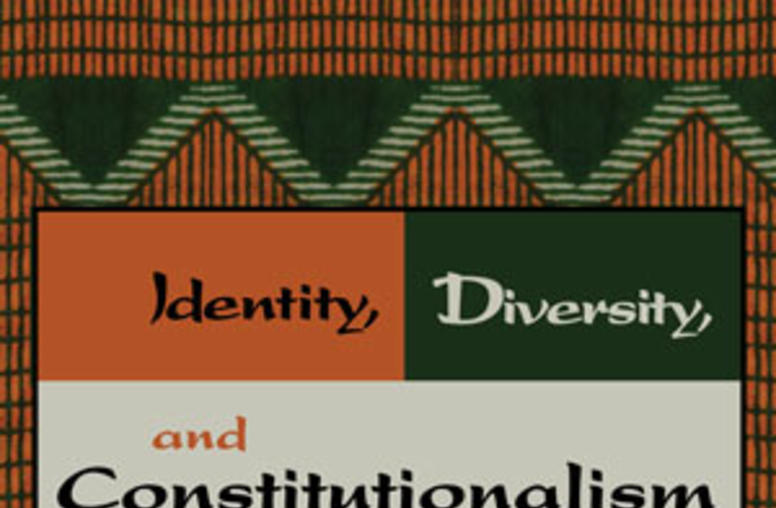
Identity, Diveristy, and Constitutionalism in Africa
In this innovative and stimulating volume, Francis Deng outlines a new relationship between governments and societies—a relationship informed by Western concepts but based on traditional African values such as respect for human dignity, equality, and self-rule.
The Next Chapter: The United States and Pakistan
On October 2, 2008, the USIP-cosponsored Pakistan Policy Working Group released a report with recommendations to the next administration as it develops its strategic options relating to Pakistan. The recommendations are endorsed by Richard L. Armitage, former deputy secretary of state and Lee Hamilton, former U.S. representative and co-chair of the 9/11 Commission and the Iraq Study Group.
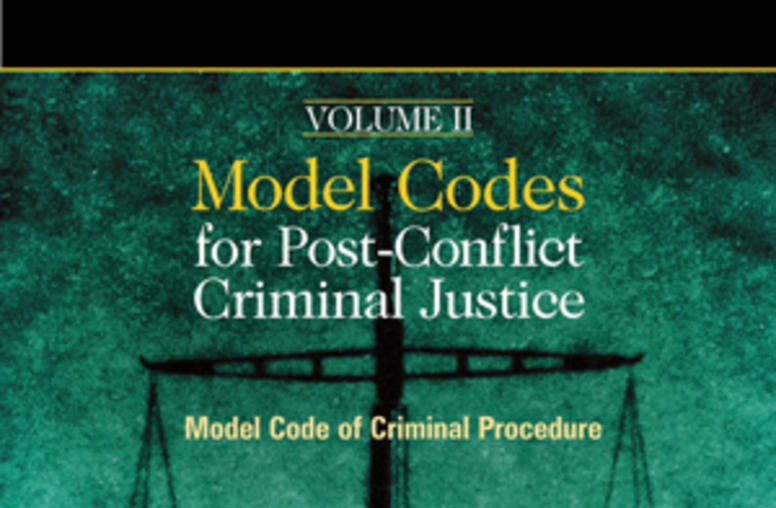
Model Codes for Post-Conflict Criminal Justice
Volume II of Model Codes for Post-Conflict Criminal Justice continues the path-breaking work of volume I, providing an indispensable resource for those striving to reestablish the rule of law in societies recently wracked by violent conflict.
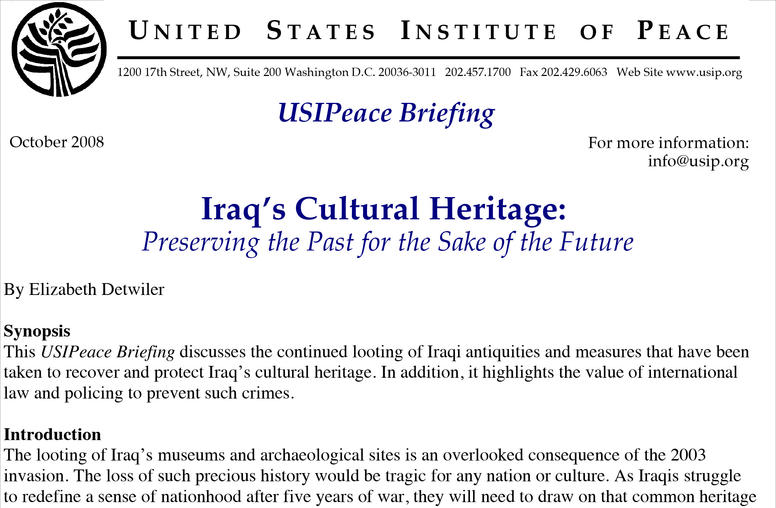
Iraq’s Cultural Heritage: Preserving the Past for the Sake of the Future
The looting of Iraq’s museums and archaeological sites is an overlooked consequence of the 2003 invasion. The loss of such precious history would be tragic for any nation or culture. As Iraqis struggle to redefine a sense of nationhood after five years of war, they will need to draw on that common heritage to reconstruct their communities.
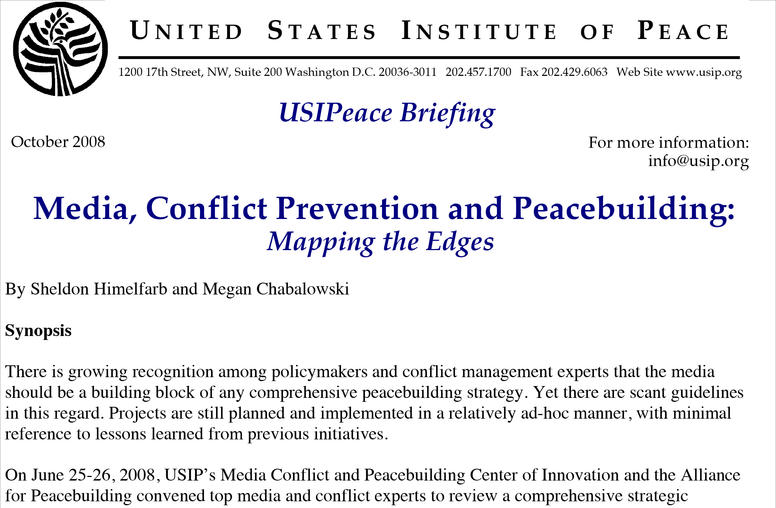
Media, Conflict Prevention and Peacebuilding: Mapping the Edges
There is growing recognition among policymakers and conflict management experts that the media should be a building block of any comprehensive peacebuilding strategy. Yet there are scant guidelines in this regard. Projects are still planned and implemented in a relatively ad-hoc manner, with minimal reference to lessons learned from previous initiatives. This USIP Peacebriefing examines the field.
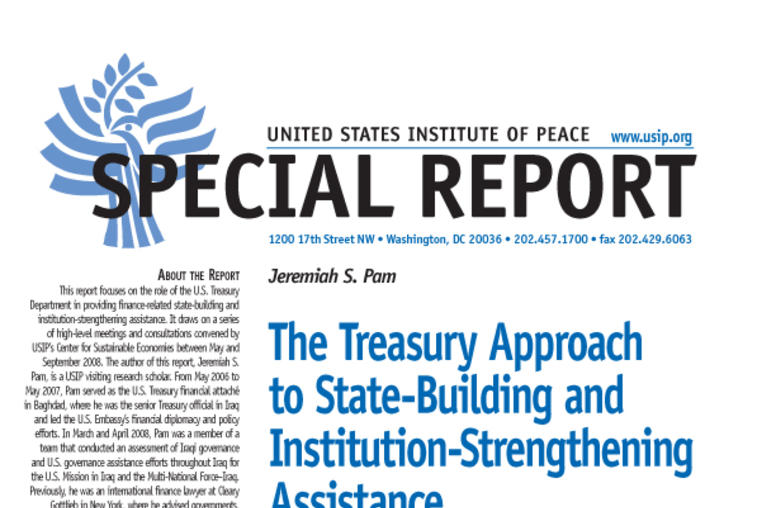
The Treasury Approach to State-Building and Institution-Strengthening Assistance: Experience in Iraq and Broader Implications
Drawing on a series of consultations convened by USIP's Center for Sustainable Economies, author Jeremiah S. Pam focuses on the role of the U.S. Treasury Department in finance-related state-building and institution-strenthening. Specifically, the report identifies key dynamics in the field and discusses aiding local institutions, providing technical assistance, improving interagency coordination and enabling local champions for such efforts.
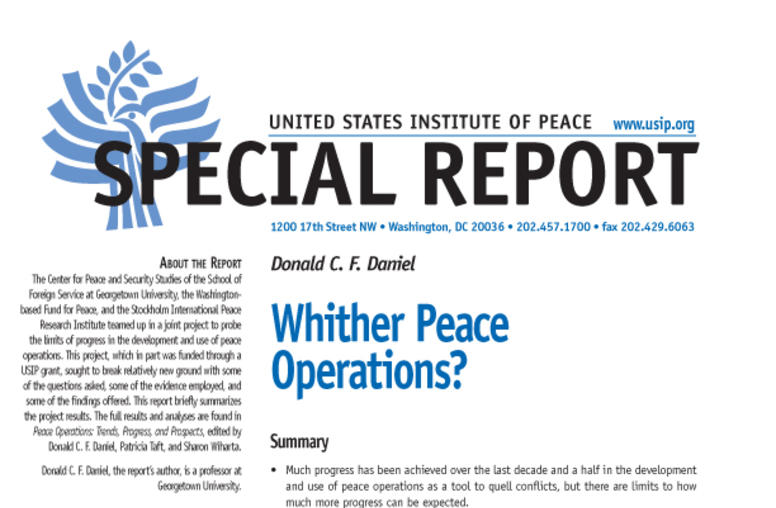
Whither Peace Operations?
Peace operations have undergone several evolutions since the first United Nations–administered peace mission in 1948. A characteristic feature of the most recent evolution, which began about a decade ago, is that today peace operations are more broadly accepted as a tool for contending with destabilizing events in all regions of the globe.
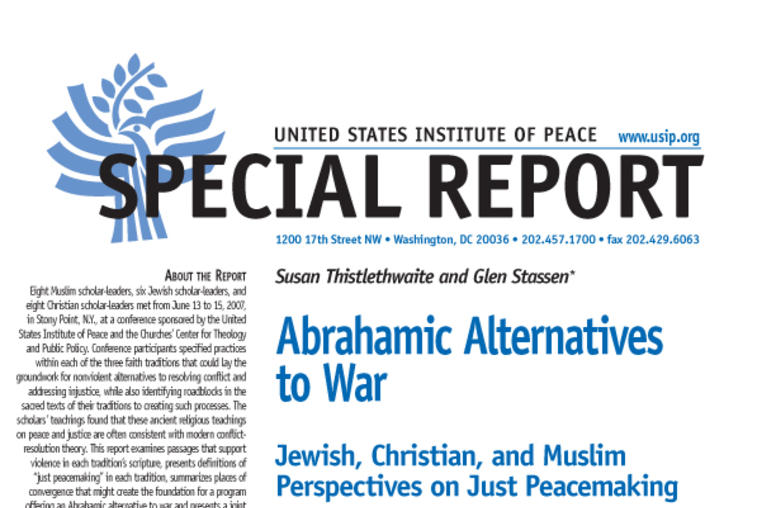
Abrahamic Alternatives to War: Jewish, Christian, and Muslim Perspectives on Just Peacemaking
Eight Muslim scholar-leaders, six Jewish scholar-leaders, and eight Christian scholar-leaders met from June 13 to 15, 2007, in Stony Point, N.Y., at a conference sponsored by the United States Institute of Peace and the Churches’ Center for Theology and Public Policy. The purpose of the conference, titled Alternatives to War, was to specify practices within each of the three Abrahamic traditions that could lay the groundwork for a nonviolent program to resolve global conflict and address inju...
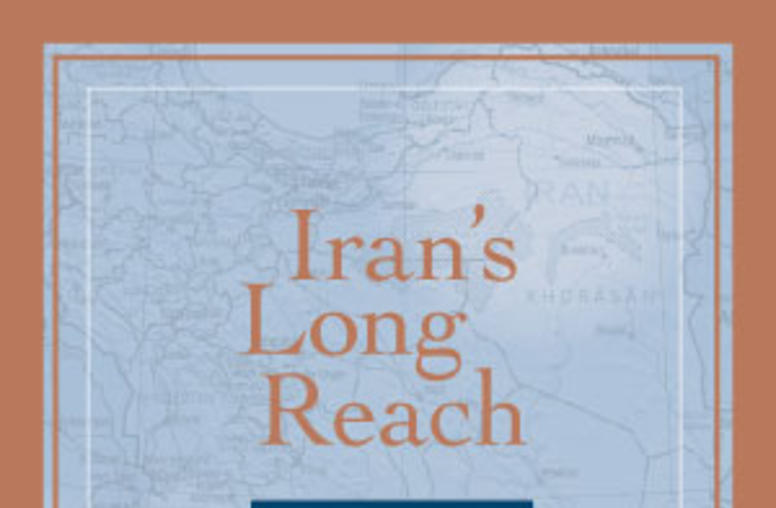
Iran's Long Reach
As the third book in the series from the Institute’s Muslim World Initiative on pivotal states in the Muslim world, this lucid and timely volume sheds much-needed light on Iran’s strikingly complex political system and foreign policy and its central role in the region.